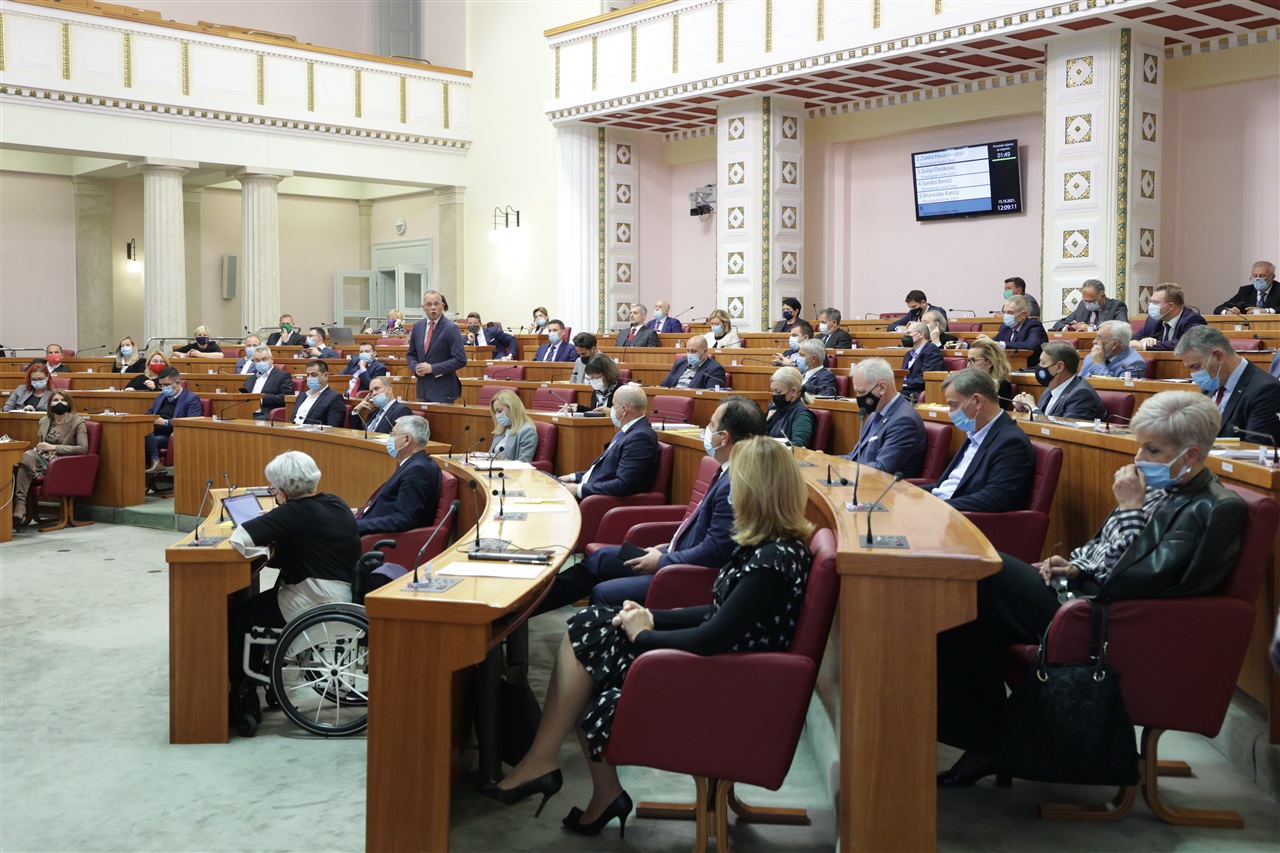
Zagreb - Croatian parliamentary parties on Friday welcomed the adoption of the law ratifying the Croatian-German Visiting Forces Agreement, with some expressing concern about the article on criminal jurisdiction and coercive measures.
The agreement concerns temporary stays of members of the armed forces of Croatia and the armed forces of Germany in the territory of the other state.
"We are concerned about the article on criminal jurisdiction and coercive measures, which narrows the right to exercise criminal jurisdiction over members of the armed forces of the sending state," Vili Matula of the Left-Green Bloc said during the discussion. "It is not clear to us why the receiving state should waive the right of broader criminal jurisdiction," he added.
The Left-Green Bloc generally supports bilateral defence cooperation with countries that have highly developed democratic standards and do not violate human rights, and when defence cooperation also includes forms of development assistance.
"Germany is one such country and we have no objections to this kind of cooperation," Matula said.
Arsen Bauk of the Social Democratic Party said that these are common provisions in agreements like this. "Without them, I doubt that any country would send its troops to another country. We, too, certainly would not want our soldiers, when deployed in a foreign country, to be tried under the laws of that country, in particular if that country has capital punishment or cuts people's hands off."
Bauk said that this agreement should be supported, because "if any problems arise in its implementation, there is a clear mechanism to fix them."
Katarina Peović of the Workers Front said that the agreement could perhaps have been improved, but that the Croatian parliament did not have a chance to do that. She resented the emphasis being put on the fact that the agreement was being signed with a major European country, which she said was "pure self-colonialism".
"I don't see this agreement as servile, but as one laying the legal groundwork for cooperation, which is already excellent," said Domagoj Hajduković of the Social Democrats group, adding that the two countries have close bilateral defence cooperation and participate together in NATO and EU missions.
"Everything that applies to the Croatian armed forces also applies to the German armed forces," noted Zdravko Jakup, state secretary at the Ministry of Defence. "We are always responsible for our forces wherever they may be and no one can absolve us from such responsibility," he said, expressing satisfaction that the ratification of the agreement is before Parliament.
The agreement governs the type, scope and duration of stays, the terms of entry, exit and stay, public security and order, public health, criminal jurisdiction and coercive measures, telecommunications, environmental protection, the operation of vehicles of the sending state’s armed forces and the use of the receiving state’s airfields, settlement of claims, exercises, and settlement of disputes.